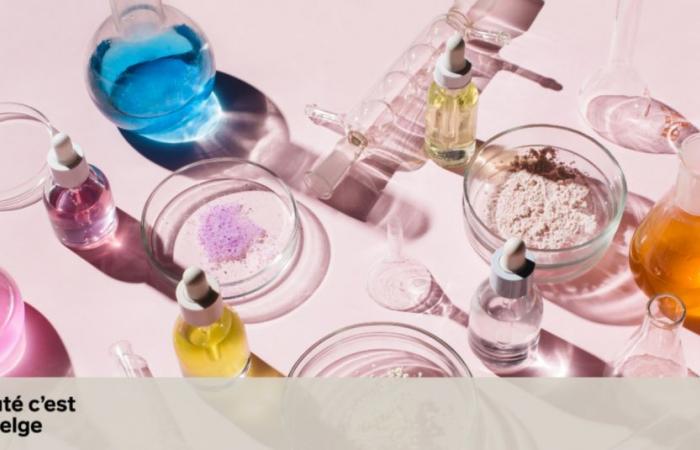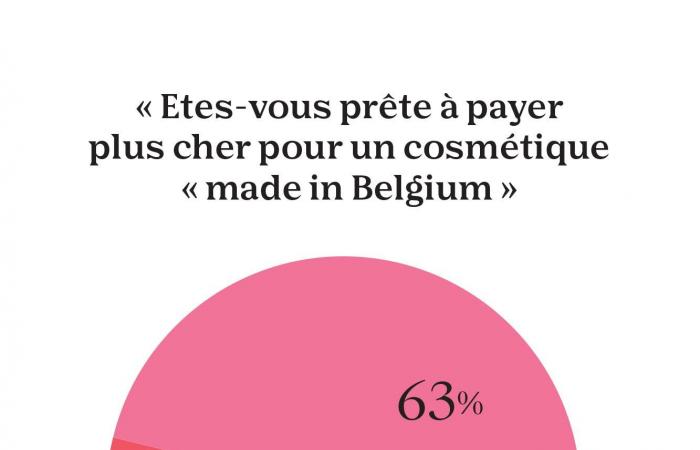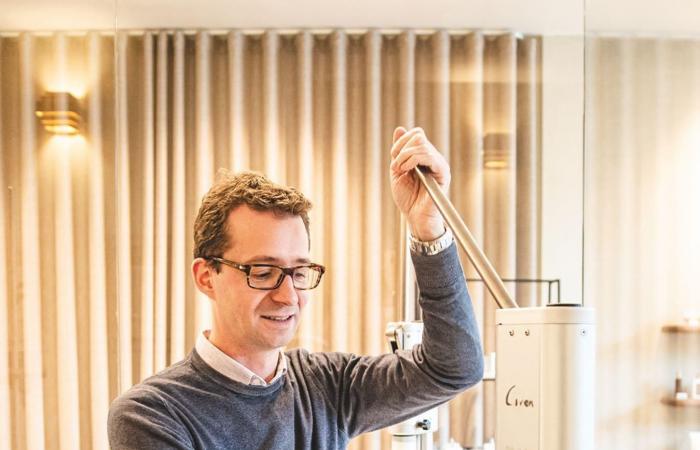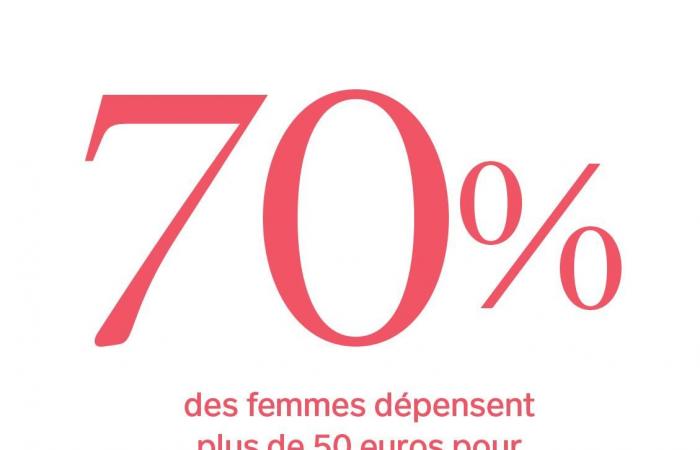In Belgium, there are more than 50 Belgian cosmetics brands. And new arrivals are constantly emerging. Most position themselves as actors wishing to promote sustainable beauty. And are attracting more and more Belgians. Return to the reasons for this success.
This is undoubtedly one of the most encouraging figures revealed by the survey conducted by Le Vif Weekend last October: more than one in four Belgian women say they buy Belgian cosmetic products. And perhaps even more of them do so since 64% admit to not knowing the exact origin of the brands they favor.
Despite enormous international competition, the Belgian terrain therefore seems conducive to entrepreneurship in the beauty sector. Our magazine, which has always been interested in local entrepreneurs, is constantly on the lookout for these new players – the vast majority of whom are women, but not only – who one day decide to launch the brand they had always dreamed of.
Effet « do it yourself »
Cosmetologist Frédérick Warzée, communications manager at Detic, the Belgian association of cosmetics producers and distributors, explains this undeniable dynamism in different ways. “For several years, “do it yourself” has been on the rise, particularly in cosmetics. Brands offer you the opportunity to buy kits to make your creams at home, you can follow workshops. This surely helped to give ideas to those who wanted to one day create their own brand.”
Another advantage and not the least: the existence on Belgian soil of production and research sectors which put their know-how at the service of entrepreneurs. “It is therefore not necessary to know how to formulate it yourself to get started,” continues Frédérick Warzée. These companies provide you with a label-free product specially manufactured according to your wishes while respecting the legislation in force in Europe. All you have to do is add your name to it. The important thing to begin with is to find how to stand out – starting with a rare ingredient or a personal story that will allow the brand to build its story telling. »
A saturated sector
As Anne-Sophie Charle, the founder of Maison Eole, the face and body care brand which is preparing to celebrate its third anniversary, also thinks, the challenge is not so much to succeed in its launch as to succeed in establishing his notoriety.
“We have all the skills in Belgium to ensure quality manufacturing from A to Z,” she admits. But it is also a completely saturated sector – by the classic players already and the new arrivals who are not all Belgian, moreover. At the head of many of these brands, we often find people passionate about cosmetics who one day wanted to create a product that they could not find on the market. At the beginning, this perhaps allows you to carry out a personal life project, to make a living from it even in the best cases. But it’s very difficult to go the distance. If you want to create value, jobs, you are obliged at one point or another to produce large volumes to achieve an acceptable cost price.”
Beware of shortness of breath
To become professional in some way, which often involves a completely different business model than that of the beginnings. If the difficulties in getting started do not seem insurmountable, it is in the long term that the problem lies. “Especially among those who have not been able to sufficiently project themselves into the future by thinking from the start of a distribution circuit broader than the website on which they launched and the financing of a production brought to becoming more and more important,” points out Frédérick Warzée who often sees brands run out of steam after three years. And this even when the quality is there.
When we started our census of the main Belgian cosmetics brands published alongside our survey, many of them seemed to have the same common denominator: the desire to offer the most natural products possible, preferably manufactured sustainably. in Belgium. A local dimension that our expert is forced to put into perspective.
Materials that are rarely Belgian
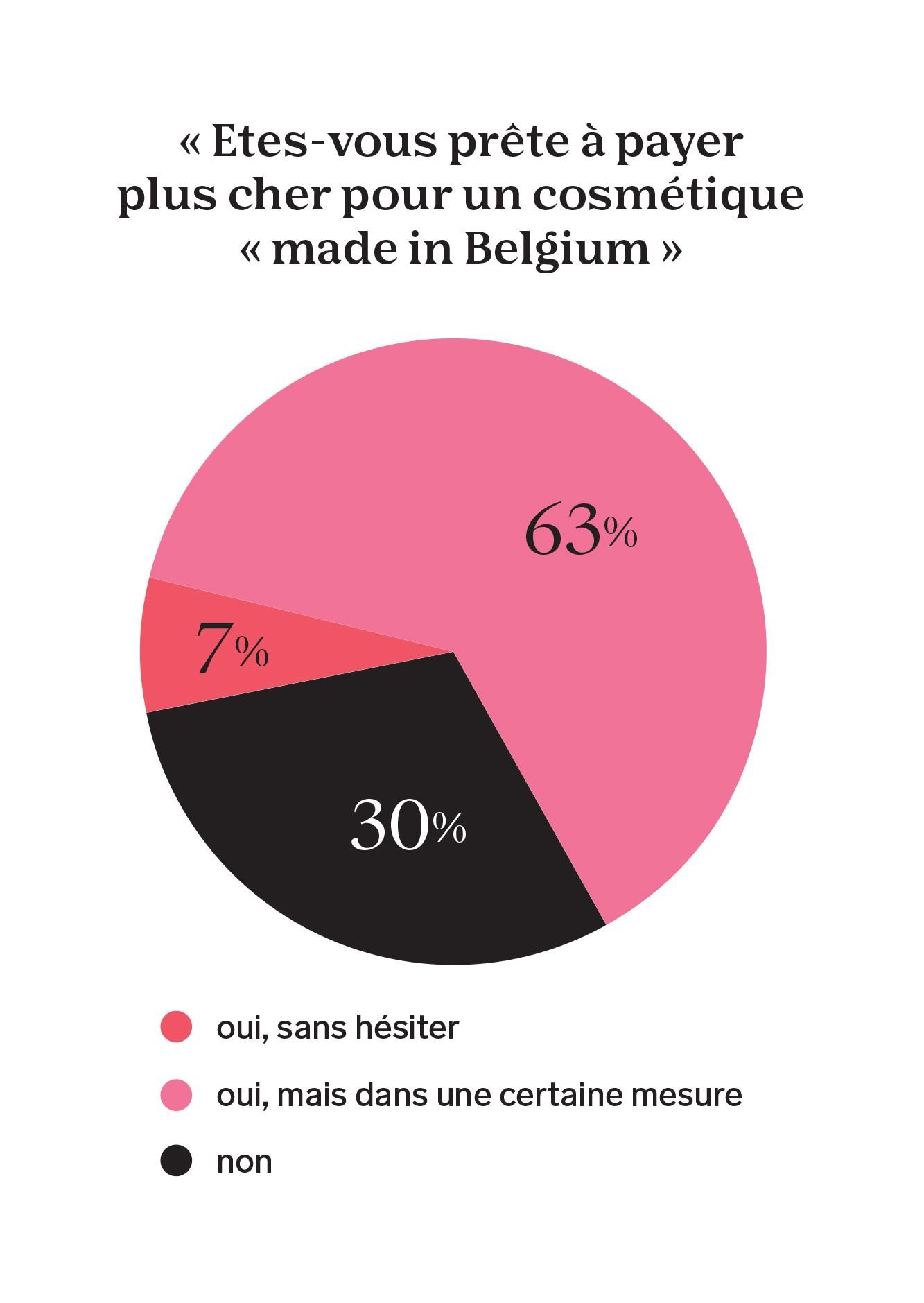
“Of course, the production sites can be located here, but it is almost impossible to manufacture cosmetic products solely from ingredients from Belgium,” he admits. In terms of sustainability, the environmental impact of sourcing is significantly less for a cosmetic product than that of the use of resources – water and energy – necessary for its manufacture and use. Its biodegradability is also essential.”
The “made in” argument when checking out is also very relative. Only 7% of women say without hesitation “ready to pay a higher price” for a Belgian product, compared to 62%… “to a certain extent”.
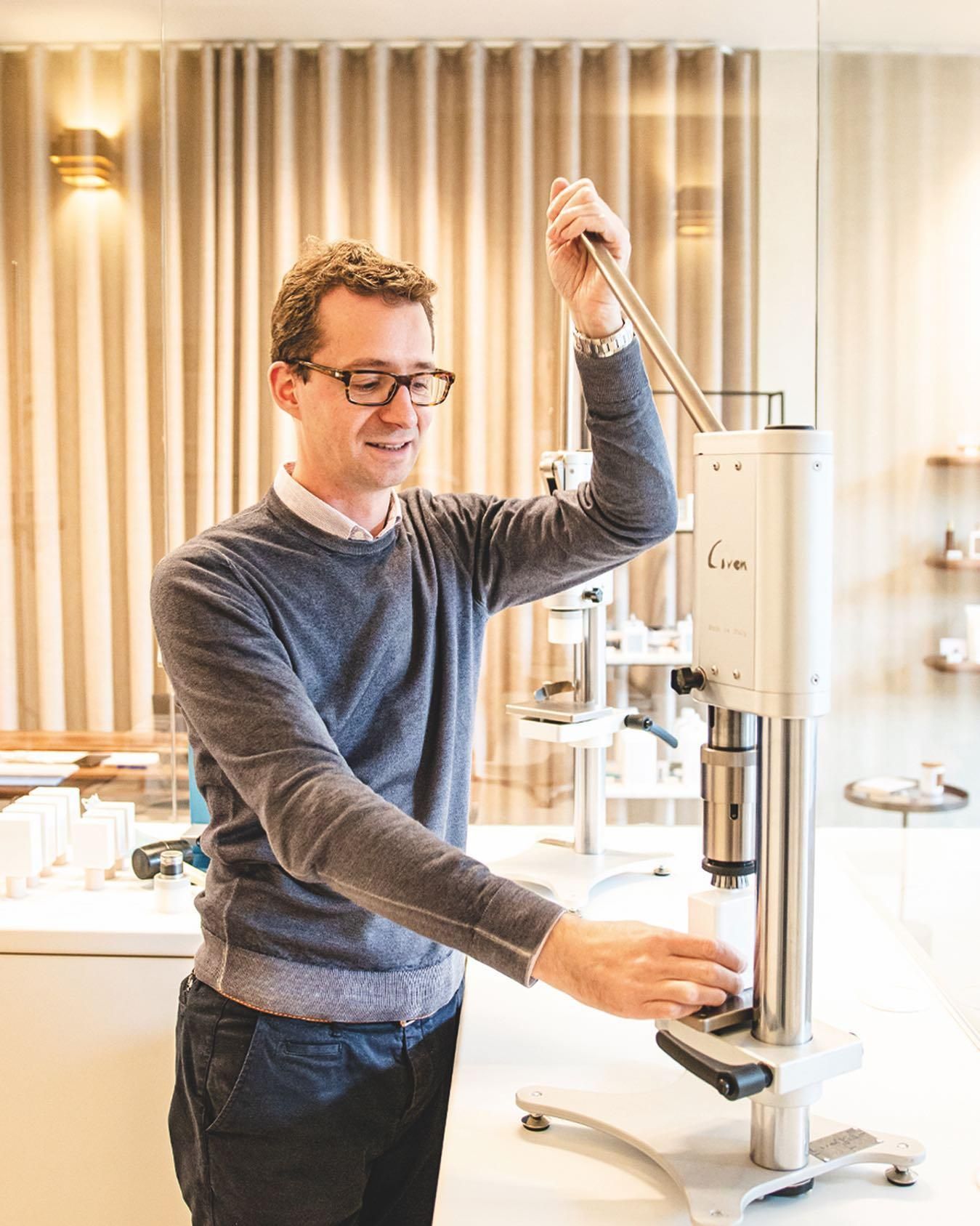
At Maison Eole, however, Anne-Sophie Charle insisted from the start that as many active ingredients as possible in her cosmetics were products derived from the family vineyard from which the bottles of Chant d’Eole come. She worked in close collaboration with local academics to best optimize the recovery of what was until then considered “waste” from the production of the famous multi-award winning bubbles that can now be found on the finest gastronomic tables in the country.
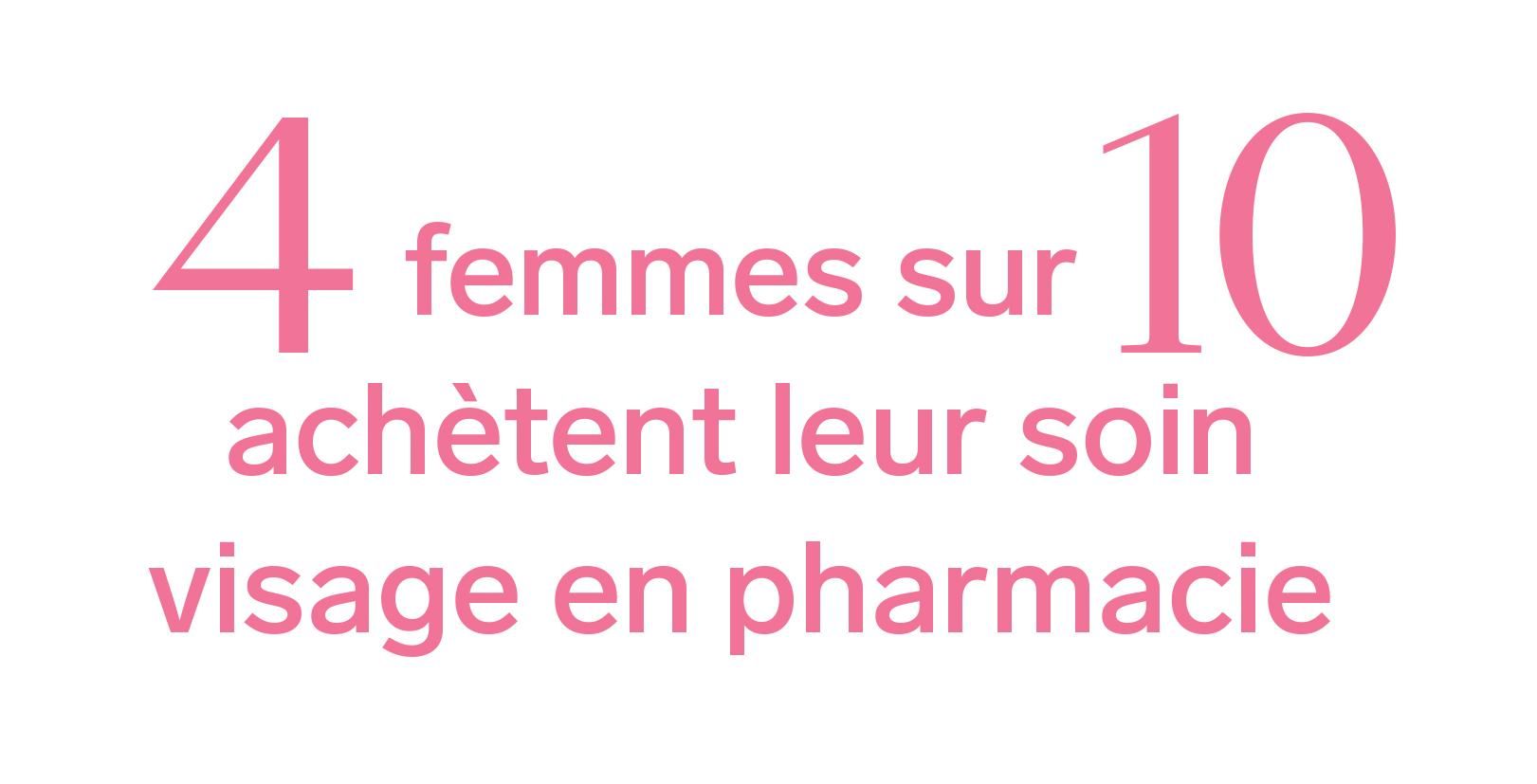
The pharmacist’s expertise
“We immediately launched 16 products to offer a diversified offering and we immediately focused on distribution in pharmacies alongside our sales in the estate’s boutique and on our site in order to immediately lay the foundations of our future development, she recalls. The pharmacist is a trusted healthcare professional who is best able to discuss products based on complex scientific research. He also only chooses for his pharmacy the ranges in which he believes and for which he fell in love.
A relationship of trust that is also forged with users: as our survey revealed, four out of 10 Belgian women buy their facial care in pharmacies. Kristof Lefebre knows this sector well, having worked for years in pharmacies before launching the Miglot perfume brand almost 5 years ago. He was able to observe the coming and going of small marks of care.
Beware of critical size
“I had the opportunity to supervise small Belgian cosmetics companies behind the scenes,” he analyzes. Very often, I noticed that viability was not there because they only had a few products and at the same time, the investment required was too large for them. To be profitable when you sell sunscreen or lipstick, you must sell it and therefore initially produce a lot of it. If you have six products for example, and you make 10,000 of each, that’s a huge investment to provide at once. Even if you hope to be able to sell them, you also need to provide somewhere to store them. »
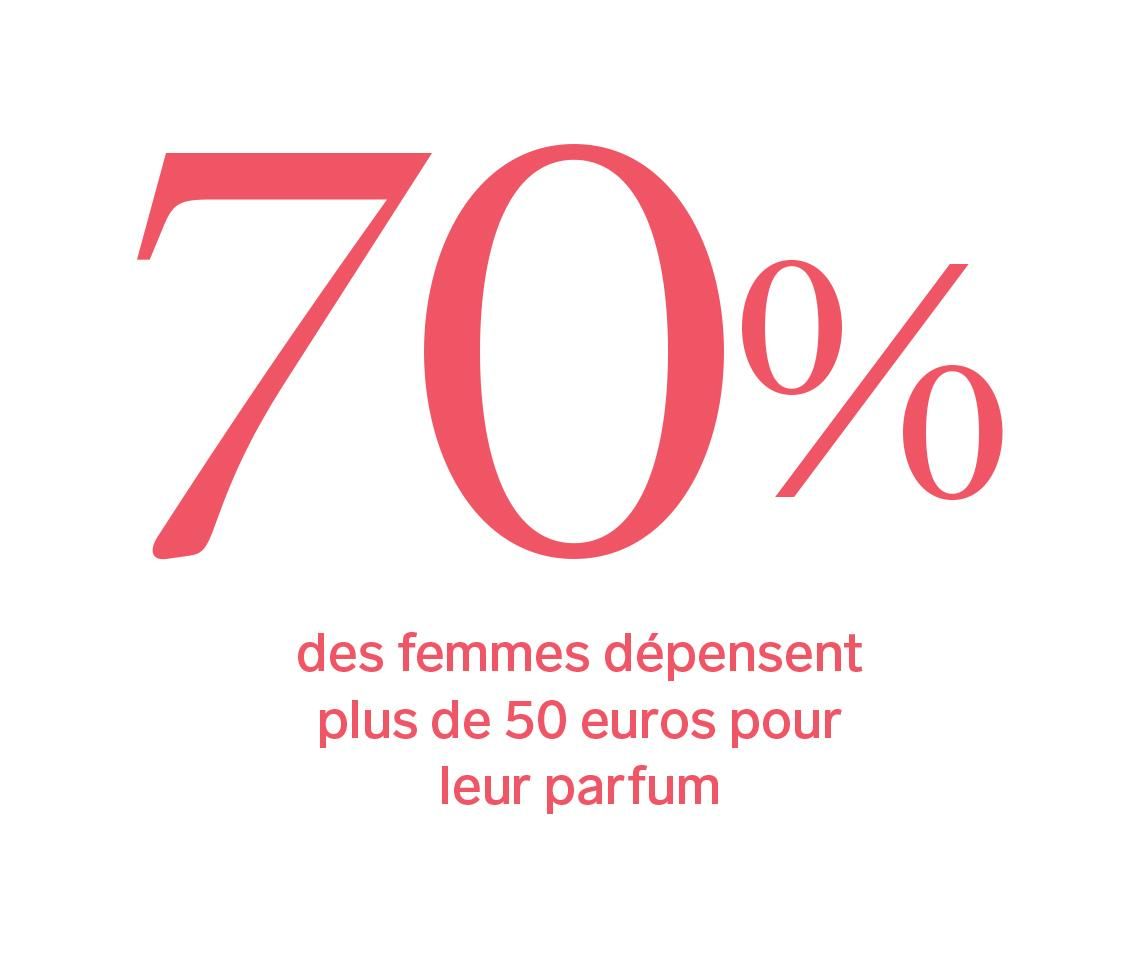
By choosing perfume, Kristof Levebre, who is preparing to open a second boutique workshop in Antwerp at the beginning of December, has not only realized his childhood dream. He also made sure he could make a long-term living from his passion. “Access to the market is very different than for other Belgian cosmetics brands,” he continues. We have chosen to keep a restricted distribution. And to produce almost on demand. As I am also a perfumer, I control each stage of production. This is why we now have a range of 22 perfumes without having thousands of bottles in stock. We also know what sells best and our production adapts to the tastes of our customers. »
Niche but not too much
It is also on their perfume that women say they are ready to spend the most: more than 70% of respondents in our survey agree to spend more than 50 euros on it and even more than 100 euros for 16% of them. And twice a year. “Our positioning allows us to be neither in the luxury niche inaccessible to many, nor in the mass market where competition is enormous,” rejoices Kristof Lefebre. With a fragrance, you also establish a stronger connection with your customer as a brand. It’s less interchangeable than a lipstick that you can find for 3 euros or 60”.
Despite the Covid which may have slightly slowed down his business plan as for most players in the sector, our perfumer says he is very happy with Miglot’s organic growth. “I was lucky enough to be able to make my passion my profession,” he concludes. And to set up a profitable business without having sought to fill a gap in the market with the sole aim of making money.”
This is perhaps where the success of Belgian beauty entrepreneurs who succeed in establishing themselves over time lies: the desire to offer, above all, a beautiful product, as durable and as high-quality as possible. By giving yourself the time you need to do it.

